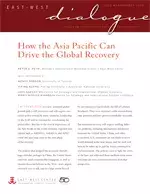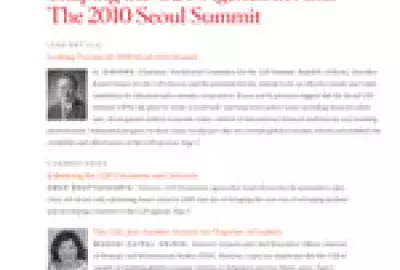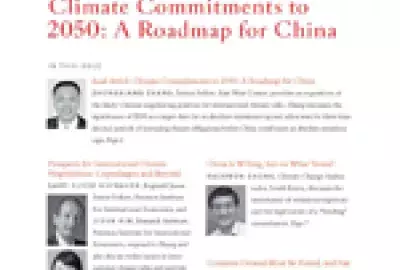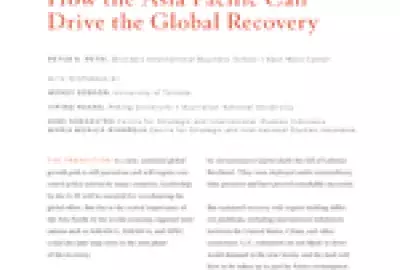Error message

Additional titles in the The transition to a new, sustained global growth path is still precarious and will require concerted policy actions by many countries. Leadership by the G-20 will be essential for coordinating the global effort. But due to the central importance of the Asia Pacific in the world economy, regional institutions such as ASEAN+3, ASEAN+6, and APEC could also play large roles in the next phase of the recovery. Interdependence in the Asia Pacific region is now often seen as a source of risk, but it also connects the most powerful technological, financial, and productive resources ever assembled in history. Asia Pacific institutions should not miss the opportunity to address the present crisis. By working together, Asia Pacific governments could send a powerful signal to markets that they intend to cooperate and will hold each other accountable for keeping growth on track. This issue of the East-West Dialogue summarizes the findings of the Pacific Economic Cooperation Council's (PECC) Taskforce on the Global Economic Crisis. The full report of this taskforce will become available from PECC during the first half of 2010. Further information is available on www.pecc.org/economic-crisis/.
The views expressed in this publication are those of the authors and not necessarily those of the Center.
|
Additional titles in the The transition to a new, sustained global growth path is still precarious and will require concerted policy actions by many countries. Leadership by the G-20 will be essential for coordinating the global effort. But due to the central importance of the Asia Pacific in the world economy, regional institutions such as ASEAN+3, ASEAN+6, and APEC could also play large roles in the next phase of the recovery. Interdependence in the Asia Pacific region is now often seen as a source of risk, but it also connects the most powerful technological, financial, and productive resources ever assembled in history. Asia Pacific institutions should not miss the opportunity to address the present crisis. By working together, Asia Pacific governments could send a powerful signal to markets that they intend to cooperate and will hold each other accountable for keeping growth on track. This issue of the East-West Dialogue summarizes the findings of the Pacific Economic Cooperation Council's (PECC) Taskforce on the Global Economic Crisis. The full report of this taskforce will become available from PECC during the first half of 2010. Further information is available on www.pecc.org/economic-crisis/.
The views expressed in this publication are those of the authors and not necessarily those of the Center.
|







